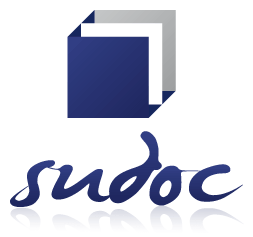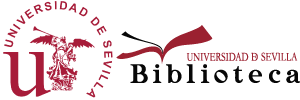Diseño curricular de proyectos formativos para el desarrollo de la educación por competencias
Curriculum Design of Training Projects for the Development of Education by Skills
Abstract
The research has the purpose of characterizing the teaching practice from the curricular design of training projects with the purpose of achieving education by competencies. In this sense, we use the case study in a Mundo Bolivariano District Educational Institution. Focus groups are made up of directors, teachers, students and experts in the curriculum that make up the educational unit. Next, we use data analysis through documents, interviews and bibliographic research in order to collect relevant information. We identify that the curriculum excludes the full identification of situations and context characteristics. Also, teachers lack the proper training to organize and carry out competency education. The inquiry approach used is a Participatory-Action-Research type.
Downloads
References
PASCUAL, R. (2010). Enhancing Project-Oriented Learning by Joining Communities of Practice and Opening Spaces for Relatedness. European Journal of Engineering Education. N° 1., pp. 3-16.
TOBÓN, Sergio. (2010). Proyectos Formativos: Metodología para el Desarrollo y Evaluación de las Competencias. Book Mart.
TOBÓN, Sergio, et al. (2015). Proyectos Formativos y Desarrollo del Talento Humano para la Sociedad del Conocimiento. Acción pedagógica. N° 1., pp. 20-31.
HERNÁNDEZ-NODARSE, Mario. (2017) ¿Por Qué ha Costado tanto Transformar las Prácticas Evaluativas del Aprendizaje en el Contexto Educativo? Ensayo Crítico sobre una Patología Pedagógica Pendiente de Tratamiento. Revista Electrónica Educare. N° 1., pp. 420-446.
MONTES, Diana Amber; SUÁREZ, Cecilia Inés. (2016). La Formación Docente Universitaria: Claves Formativas de Universidades Españolas. Revista electrónica de investigación educativa. N° 3., pp. 51-64.
GÓMEZ, José Antonio, TOBÓN, Sergio. (2017). Análisis Documental de los Proyectos Formativos en Educación Básica. Metodología, experiencias y beneficios. Revista Atlante: Cuadernos de Educación y Desarrollo.
MACÍAS, Angélica, LÓPEZ, Alejandro, RAMÍREZ, María. (2012). Recursos Educativos Abiertos para la Enseñanza de las Ciencias en Ambientes de Educación Básica Enriquecidos con Tecnología Educativa. Revista Iberoamericana de Educación. N°3., pp. 1-24.
CALISKAN, Nihat, KUZU, Okan, KUZU, Yasemin. (2017). The Development of a Behavior Patterns Rating Scale for Preservice Teachers. Journal of Education and Learning. N°6., pp. 130-142.
CHIOVITTI, Anthony, DUNCAN, Jacinta, JABBAR, Abdul. (2017). Promoting Science in Secondary School Education. Trends in Parasitology. N° 33., pp. 416-420.
PALSA, Lauri, MERTALA, Pekka. (2019). Multiliteracies in Local Curricula: Conceptual Contextualizations of Transversal Competence in the Finnish Curricular Framework. Nordic Journal of Studies in Educational Policy. N° 5., pp. 114-126.
RYAN, Richard, DECI, Edward. (2000). Self-Determination Theory and the Facilitation of Intrinsic Motivation, Social Development, and Well-Being. American Psychologist. N° 1., pp. 68–78.
TOBÓN, Sergio. (2010). Formación Integral y Competencias: Pensamiento Complejo, Currículo, Didáctica y Evaluación.Ecoe.Bogotá. Colombia.
KILPATRICK, William. (1918). The Project Method. Teachers College Record. N° 4., pp. 319-335.
TOBÓN, Sergio. (2014). Evaluación de Competencias Mediante Rúbricas.CIFE. México.
TOBÓN, Sergio. (2018). Conceptual Analysis of the Socioformation According to the Knowledge Society. Knowledge Society and Quality of Life (KSQL). N° 1., pp. 9-35.
RODRIGUEZ PERALTA, Maria de Lourdes; NAMBO DE LOS SANTOS, Juan Salvador; RODRÍGUEZ BUENDÍA, Jesús. (2018). Socioformation and the Formative Evaluation in Engineering, Romanian Journal for Multidimensional Education / Revista Romaneasca pentru Educatie Multidimensionala.N° 1., pp. 210-227.
HERNÁNDEZ, José, TOBÓN, Sergio, VÁZQUEZ, José Antonio. (2018). Estudio Conceptual de la Docencia Socioformativa. Ra Ximhai. N° 5., pp. 89-101.
SHELLEY, Karen, MCCUAIG, Louise. (2018). Close Encounters with Critical Pedagogy in Socio-Critically Informed Health Education Teacher Education. Physical Education and Sport Pedagogy. N° 5., pp. 510-523.
DÍAZ BARRIGA, Frida. (2004). Las Rúbricas: Su Potencial como Estrategias para una Enseñanza Situada y una Evaluación Auténtica del Aprendizaje. Perspectiva Educacional, Instituto de Educación PuCV. Vol. 43., pp. 51-62.
FLORES-FUENTES, Gloria, JUÁREZ-RUIZ, Estela de Lourdes. (2017). Aprendizaje Basado en Proyectos para el Desarrollo de Competencias Matemáticas en Bachillerato. Revista electrónica de investigación educativa. N° 3., pp. 71-91.
HELLE, Laura, TYNJÄLÄ, Paivi, OLKINUORA, Erkki. (2006). Project-Based Learning in Post-Secondary Education–Theory, Practice and Rubber Sling Shots. Higher Education. N° 2., pp. 287-314.
SHAWER, Saad. (2017). Teacher-Driven Curriculum Development at the Classroom Level: Implications for Curriculum, Pedagogy and Teacher Training. Teaching and Teacher Education. N° 63., pp. 296-313.
VOIGHT, Adam, VELEZ, Valerie. (2018). Youth Participatory Action Research in the High School Curriculum: Education Outcomes for Student Participants in a District-Wide Initiative. Journal of Research on Educational Effectiveness. N° 3., pp. 433-451.
MCILVENNY, Leonie. (2019). Transversal cCompetencies in the Australian Curriculum. Access. N° 2., pp. 7-13.
TSANKOV, Nikolay. (2017). Development of Transversal Competences in School Education (A Didactic Interpretation). International Journal of Cognitive Research in Science, Engineering and Education. N° 2., pp. 129-144.
TOBÓN, Sergio. (2013). La Evaluación de las Competencias en la Educación Básica. Editorial Santillana. México D. F.
KREISEL, Maike. (2016). El eEnfoque Intercultural en el Currículo de Telesecundaria–Elementos para una Reflexión Crítica. Sinéctica. Revista Electrónica de Educación. N° 46., pp. 1-18.
RUAY, Rodrigo, GONZALEZ, Pablo, PLAZA, Exequiel. (2016). ¿Cómo Abordar la Renovación Curricular en la Educación Superior? ALTERIDAD Revista de Educación. N° 2., pp. 157-170.
ROFII, A.; MURTADO, F.; RAHMAT, A. (2019). Lecturers’ and Students’ Perception on Learning Model of Contextual-Based Academic Writing. En ICEL: First International Conference on Advances in Education, Humanities, and Language, ICEL, Malang, Indonesia, 23-24 March. European Alliance for Innovation,, p. 371.
RIZWAN, Sidra; MASRUR, Rehana. (2019). Need Assessment for the Professional Development of Teachers in Content Knowledge of Instructional Planning and Strategies. Pakistan Journal of Education. Vol. 36. N° 1.
NEGRÍN, Gerson. (2016). Evaluación del Currículo con base en la Metodología de la Socioformación. Caso: Comunicación Intercultural. Human Development and Socioformation. N° 1., pp. 1-25.
DE LOS RIOS, Ignacio, CAZORLA, Adolfo, DÍAZ-PUENTE, José, YAGÜE, José. (2010). Project–Based learning in Engineering Higher Education: Two Decades of Teaching Competences in Real Environments. Procedia-Social and Behavioral Sciences. N° 2., pp. 1368-1378.
JUMAAT, Nurul, TASIR, Zaidatun, HALIM, Noor, ASHARI, Zakiah. (2017). Project-Based learning from Constructivism Point of View. Advanced Science Letters. N° 8., pp.7904-7906.
MOESBY, Egon. (2005). Curriculum Development for Project-Oriented and Problem-Based learning (POPBL) with Emphasis on Personal Skills and Abilities. Global J. of Engng. Educ. N° 2., pp. 121-128.































